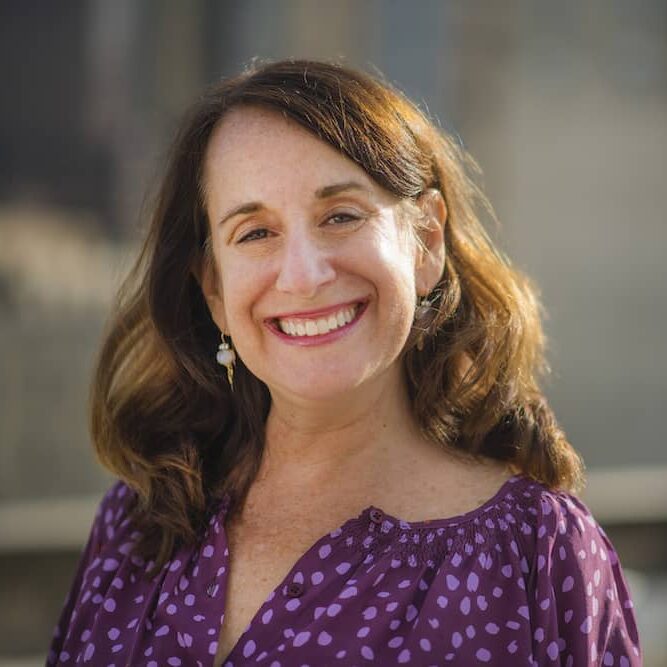Dear reader,
From our angst department, I’m writing to fill you in about an ethical question I and journalists across the country are wrestling with this election cycle – one that pits our duty not to take sides against our responsibility to speak the truth.
As I write this, I am reminded of the first news story I covered at age 15. It was about a flag burning, and I went to the VFW for reactions. The fury among veterans there was palpable as they explained over their beers that setting a U.S. flag on fire diminished their sacrifices and spit on everything that makes our country worth defending.
One man whose hand had been blown off in Vietnam said I would never understand if I grew up to become a reporter. Journalists don’t sacrifice anything, he told me. He said we don’t stand for anything, either.
I have mulled his words throughout my career, trying to reconcile the growing public opinion that journalists are soulless cynics with the integrity and idealism so obvious to me among most of the reporters and editors I’ve worked with. I often have wondered if “real people,” as journalists call those outside our business, understand the lines we draw in our profession.
Journalists’ code of ethics keeps us from marching in rallies and protests to avoid news bias and conflicts of interest, or at least the appearance of them for ourselves and our outlets. For the same reasons, we also cannot donate to or volunteer with political campaigns. We don’t post campaign signs in our yards or put political stickers on our bumpers. Some of us don’t register with political parties, and some even refrain from voting altogether.
Most of my colleagues have struggled at one point or another with ceding these most basic American rights. As thinking, feeling human beings, not cyborgs, we of course have opinions about the politicians we cover and the ways their policies affect the people we write for and about. Naturally, we also have urges to express them. As a woman and mother, a believer in science and the First Amendment, a drinker of water and breather of air, and a taxpayer in addition to being a journalist, I have at many times found it hard to hold my tongue.
This year, I have spent a lot of time rethinking that silence.
How can we justify our silence in the face of a president who has a long record of treating members of our profession as “enemies of the people?” Should we keep quiet when he describes attacks on journalists – as recently as last week when police shot a working reporter with a rubber bullet – as “a beautiful thing?” What, under this administration, in this awful time, is a forced sense of journalistic fairness but a false and dangerous equivalency? And what credibility can we expect to have as watchdogs if we do not call out an administration for its attacks on free speech and assembly, on science and human rights, and for its repeated lies, large and small?
We can either abandon our duty to inform, thereby rendering ourselves and our profession mute and irrelevant. Or we can speak out, opening ourselves to criticism that we are unfair and taking sides. Either option is bad for business in an industry struggling to stay afloat.
This is not by any means an endorsement for Joe Biden or any other candidate. It is, rather, a Mayday that Trump has spent four years mocking and deriding, undercutting and abusing journalists. In doing so, he has spit on facts, transparency and accountability, the basic mechanics of democracy and even the very bedrock of reality and truth. If you can stomach it, read Barton Gellman’s deeply reported story on The Atlantic’s website this week about the Trump team’s plans to subvert the election.
Gellman urges journalists, as well as election administrators, mayors, law enforcement officers, lawmakers, judges, military brass, civil servants and voters to “take agency” and “do the right thing when you’re asked to do otherwise.”
“An election cannot be stolen unless the American people, at some level, acquiesce,” he writes.
The Atlantic is the 163-year-old magazine that published Ralph Waldo Emerson, Harriet Beecher Stowe, Oliver Wendell Holmes Sr. and Henry Wadsworth Longfellow. It decided to run Gellman’s story two months early because of its magnitude. In a time when Americans are questioning the value of journalism, and when journalists themselves are questioning the ethics of bothsidesism, it is a beacon of reporting excellence, and also an inspiring act of agency and conscience.
There was no way 38 years ago to know what massive transformations were in store for journalism, nor for politics. But if I could go back to that VFW – not as a teenager, but now as a longtime reporter and news junkie – I would tell that veteran what I have learned countless times from countless journalists I’ve worked with and read: That we do in fact stand for something. Truth. And when it’s lacking, especially in our halls of highest power, we must call it out.
Take good care of yourselves and each other.

Susan
A version of this post originally appeared in a letter to readers on Friday, Sept. 25. Get our newsletter delivered straight to your email box by signing up here.




